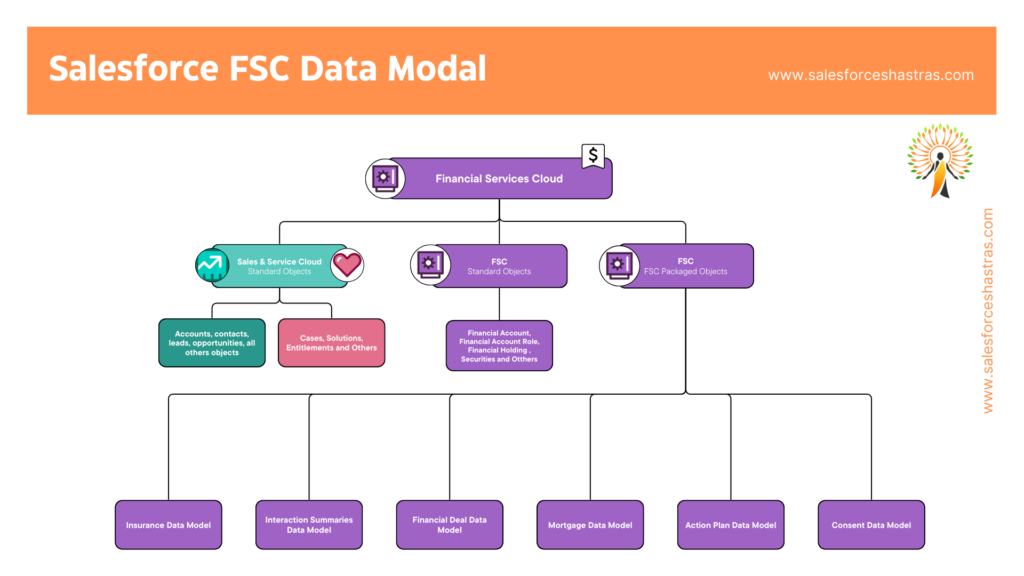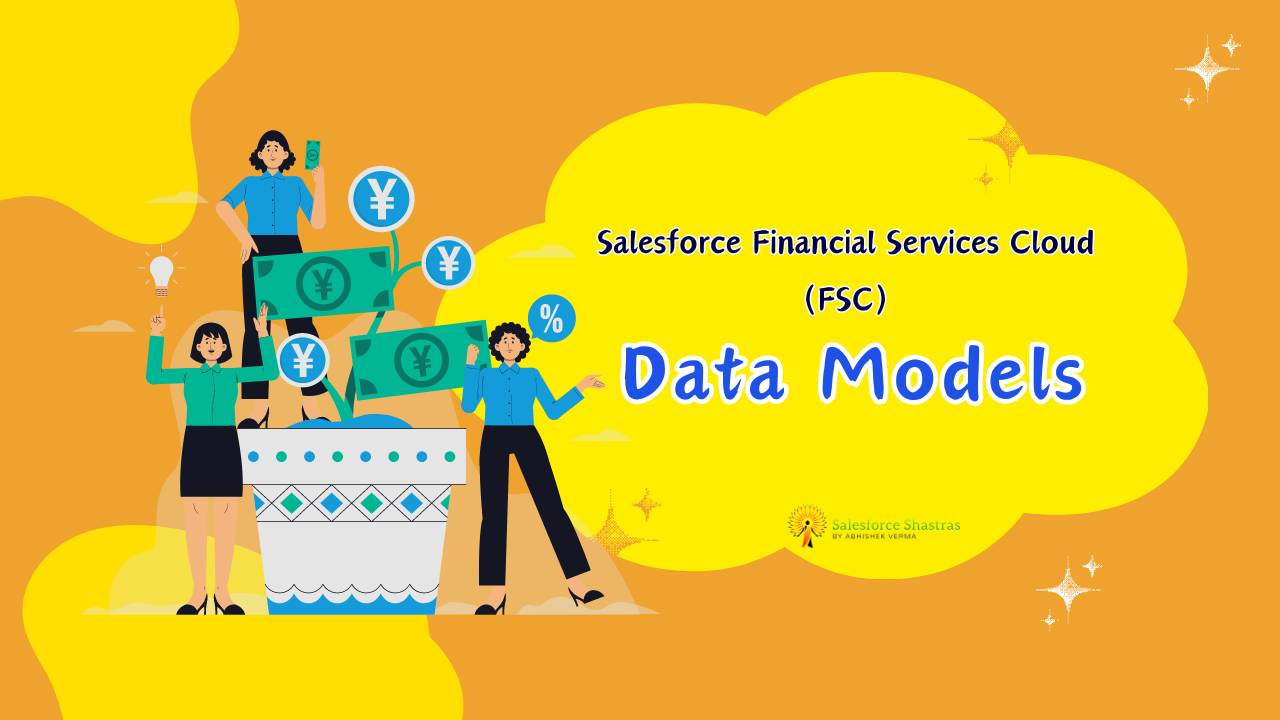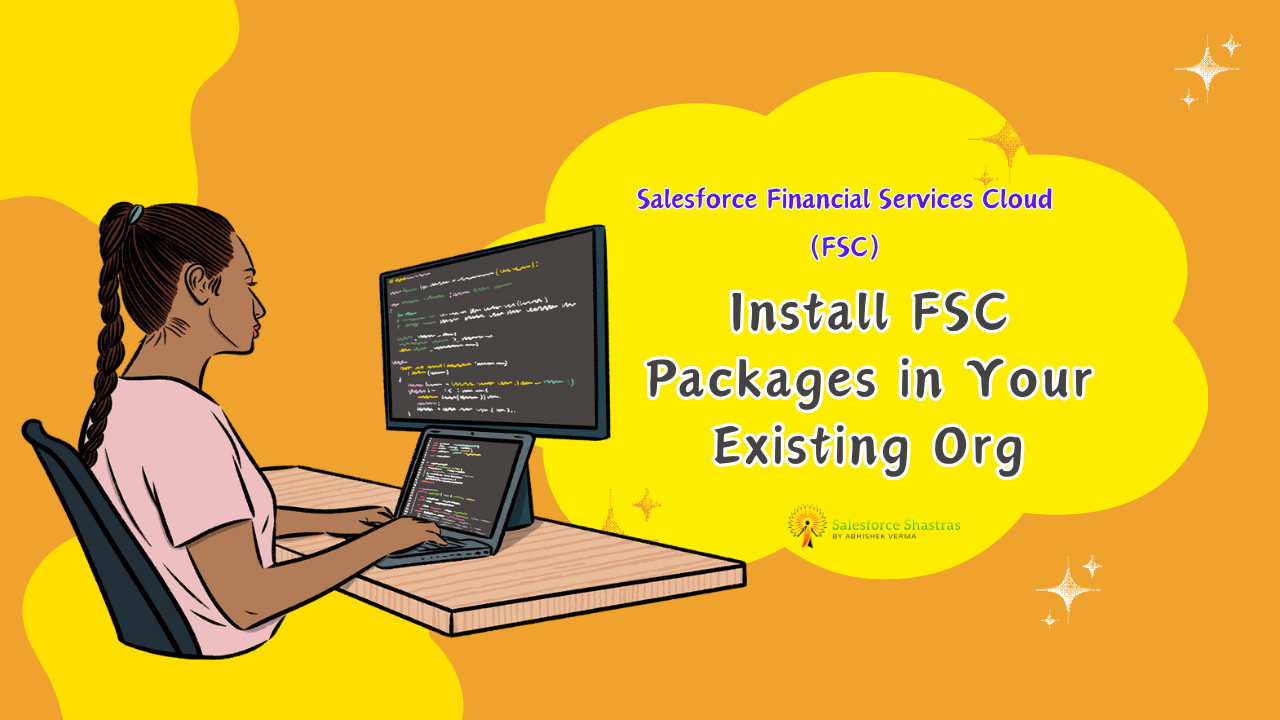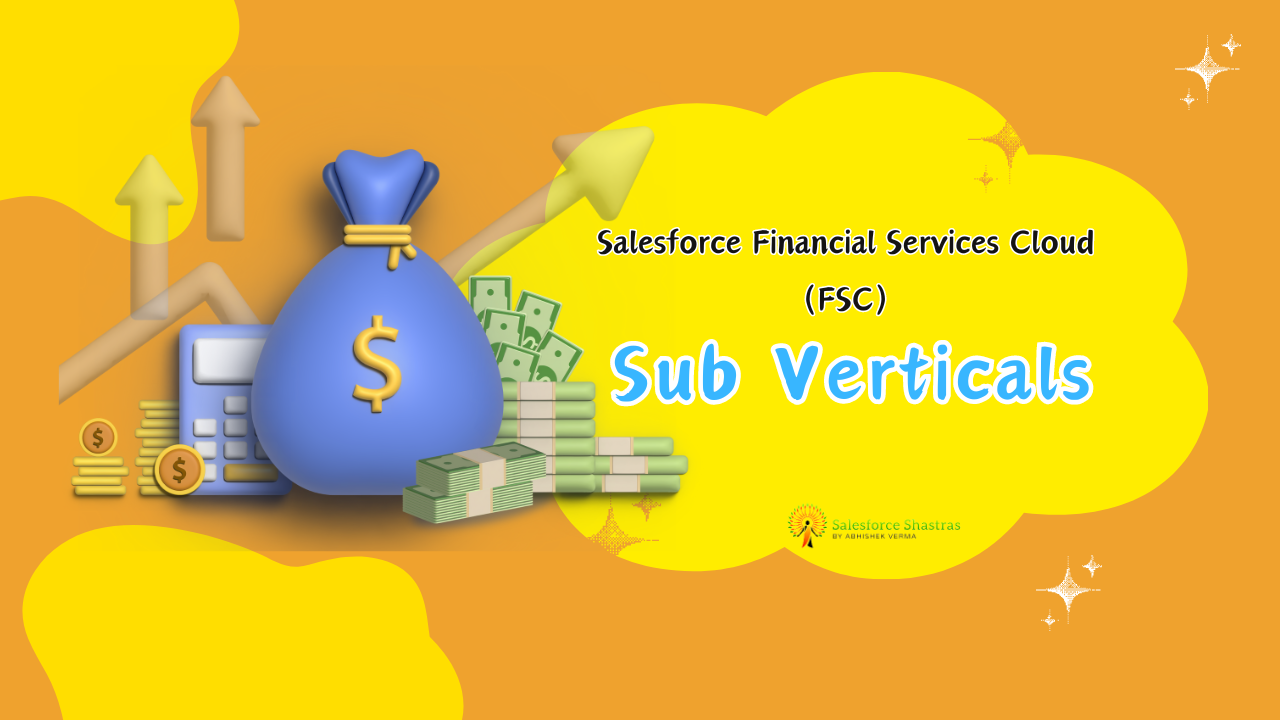In the dynamic world of financial services, the ability to swiftly adapt and respond to market changes is pivotal. At the heart of this agility is the data that powers decisions and strategies. Industry-specific Data Models of Financial Services Cloud (FSC) provide tailored solutions that cater specifically to the needs of financial institutions. These models help streamline operations, enhance customer experiences, and improve financial management by leveraging custom data frameworks designed to meet the unique requirements of the sector.
Why Industry-Specific Data Models Matter
Financial services are not a one-size-fits-all industry. Each segment, from banking to insurance to wealth management, faces distinct regulatory, customer, and operational challenges. Industry-specific data models in FSC address these nuances, enabling financial institutions to manage risk, comply with regulations, and provide personalized services more efficiently.
Financial Services Industry Data Model
The Financial Services Industry Data Model is one of the reasons why financial services companies should implement FSC instead of Sales or Service Cloud. If you are implementing Sales or Service Cloud for Financial Services customers, you will have to design a custom data model to represent entities in the financial sector. Building a data model from the ground up can be a significant effort.
FSC comes with out-of-the-box (OOB) structured and flexible data models specific to the Financial Services Industry. The Financial Services Cloud data model includes:
- Sales and Service Cloud Standard Objects
- FSC Standard Objects
- FSC Packaged Objects
These data models are designed to address the complexities and challenges faced by cloud-based insurance and financial services systems across all insurance markets.

Sales and Service Cloud Standard Objects
- Service Cloud Objects:
- Service Cloud focuses on customer support and service management. It includes the same objects as Sales Cloud, but with additional features for customer support. Here are some key objects in the Service Cloud data model:
- You can explore the complete Service Cloud data model in the Salesforce Object Reference
- Cases: Represents customer inquiries, issues, or requests.
- Solutions: Stores solutions or answers to common problems.
- Entitlements: Manages service-level agreements (SLAs) and entitlements.
- Other related objects for customer support.
- Sales Cloud Objects
- Accounts: Represents companies or organizations that your business interacts with.
- Contacts: Represents individuals associated with those accounts.
- Leads: Captures potential customers or prospects.
- Opportunities: Tracks potential deals or sales.
- Reports and Dashboards: Provides insights into your sales performance.
- Campaigns: Manages marketing campaigns.
- Tasks and Activities: Records interactions and tasks related to sales activities.
- Products and Assets: Tracks products and services.
- Quotes: Manages sales quotes.
You can find more details about the Sales Cloud data model in the Salesforce Object Reference
FSC Standard Objects
Financial Account: A unique account object that helps separate accounts by financial product type, such as checking, savings, loans, etc.
Insurance Policies : Objects related to insurance policies, including policy details, beneficiaries, and claims.
Interactions: Objects for tracking customer interactions and conversations across various channels.
Financial Deals: Objects for managing financial deals and transactions.
Mortgages: Objects specific to mortgage products and applications.
Action Plans: Objects for creating and managing action plans related to financial services activities.
Consent: Objects for tracking customer consent preferences.
FSC Packaged Objects
FSC (Financial Services Cloud) Packaged Objects include:
Insurance Data Model: Provides specialized objects and data structures for insurance-related functionality, such as policies, claims, and beneficiaries. These objects can be leveraged for sales and service activities around insurance products and services.
Interaction Summaries Data Model: Offers objects and data models for tracking and managing customer interactions across various channels. These interaction-related objects can be used to enhance sales and service capabilities by providing a centralized view of customer touchpoints.
Financial Deal Data Model: Includes objects for managing financial deals, transactions, and related data. These deal-focused objects can support sales activities around financial products and services.
Mortgage Data Model: Provides objects specific to mortgage products, applications, and related information. These objects can be leveraged for sales and servicing of mortgage-related financial services.
Action Plans Data Model: Offers objects for creating and managing action plans related to financial services activities. These action plan objects can be used to streamline sales and service processes for financial services organizations.
Consent Data Model: Includes objects for tracking and managing customer consent preferences.
These FSC Packaged Objects are additional data models that are included in the Financial Services Cloud offering, beyond the core FSC Standard Objects, to provide more specialized functionality and data structures tailored to specific financial services verticals.
What are the differences between FSC standard objects and FSC packaged objects?
The differences between FSC (Financial Services Cloud) Standard Objects and FSC Packaged Objects are as follows:
- FSC Standard Objects:
- FSC Standard Objects are part of the core Financial Services Cloud data model and are pre-built objects specifically designed for the financial services industry.
- These objects, such as Financial Accounts, Insurance Policies, Interactions, Financial Deals, Mortgages, Action Plans, and Consent, come ready-made within the Financial Services Cloud to streamline processes and cater to industry-specific needs.
- FSC Packaged Objects:
- FSC Packaged Objects are additional data models that are included in the Financial Services Cloud offering but are not part of the core standard objects
- These packaged objects, like the Insurance Data Model, Interaction Summaries Data Model, Financial Deal Data Model, Mortgage Data Model, Action Plans Data Model, and Consent Data Model, provide more specialized functionality and data structures tailored to specific financial services verticals within the industry.
Conclusion
By combining the FSC Standard Objects and the FSC Packaged Objects, Salesforce Financial Services Cloud offers a comprehensive and flexible data model that enables financial services organizations to streamline their operations, improve customer experiences, and drive growth.



